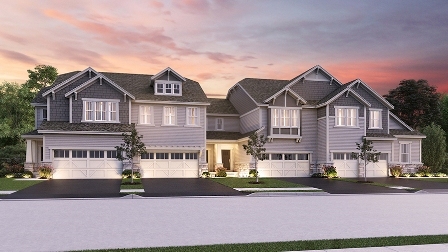Dwelling Insurance
Flood Insurance
Car Insurance
Condo Insurance
Home Page
Home

Condo

Townhome

WFG Insurance
218 Commercial Blvd, Suite 217
Lauderdale by the Sea, FL 33308
954 492 5592
Condo and Home Insurance
One of the key differences between home and condo ownership concerns how much of your residence you have to insure. Buying a home means you own and are responsible for the inside and outside of your place, including the land it sits on. Buying a condo, on the other hand, only leaves you solely responsible (usually) for the interior of your place. The outside land, condo building structure, and building common areas are all typically insured by your condo association. Home and Condo Insurance call 954 492 5592.
Dwelling and Personal Property
Dwelling coverage condo - you need just enough dwelling protection to rebuild the interior of your unit from the finished walls, ceilings and slab inward. Repairs on the outside of the building i.e. common areas, if they were ever destroyed by a covered risk, would fall under the condo association's insurance, including all drywall. Your condo association documents should spell out what is covered. Dwelling coverage homes - is the total estimated rebuilding cost of the house and other structures on your property (fences, sheds, carports, etc.). homeowners tend to require a good deal more dwelling coverage.Personal Property aka Contents - Insuring personal property is the responsibility of condo and homeowners, typical personal property doesn't include kitchen appliances, it is covered in dwelling. You can choose replacement cost v actual cash value.
Liability Coverage
Condo Insurance, you could be held responsible if visitors in your condo are injured, you accidentally injure someone away from home, or you damage someone else's property. You need personal liability coverage to help you avoid paying out of pocket in these situations. However, you typically don't need liability protection for claims involving building common areas — if a visitor slips in the pool area or falls down in the lobby entrance, covered by association's policy. Home Insurance is different, homeowners can be found liable for injuries that happen in their residence or away from home, plus property damage they cause. Homeowners have to worry about injuries that occur on the land around their place because a home often has items that a condo unit doesn't — pools, trampolines and playground equipment, homeowners often need more liability coverage.
Other Coverage's
Personal Articles Floater or PAF protects valuable items such as jewelry, watches due to theft loss at your appraised value. Many policies limit theft loss to a fraction of the cost. An Umbrella policy will offer more liability above your condo or home personal liability coverage. Also there are excess liability and Life Insurance policies to increase your protection.

Also called Personal Injury Protection (PIP) Insurance covers you - regardless of fault (i.e. whether or not you cause the crash) - up to the limits of your policy. Your PIP will also cover your child, members of your household. The Florida Motor Vehicle No-Fault Law, requires all owners of a motor vehicle with four wheels or more to carry a minimum of $10,000 of Personal Injury Protection (PIP) and $10,000 of property damage liability (PDL) if you own a motor vehicle in Florida. Florida law requires you to maintain PIP/PDL insurance continuously throughout the licensing and registration period.
Bodily injury liability coverage applies to injuries that you, the designated driver or policyholder, cause to someone else. You and family members listed on the policy are also covered when driving someone else’s car with their permission. Property liability coverage pays for damage you (or someone driving the car with your permission) may cause to someone else's property. Usually, this means damage to someone else’s car, but it also includes damage to lamp posts, telephone poles, fences, buildings or other structures your car hit. In Florida a no fault state, your first 10,000 of injury related cost are covered by Medical payments and personal injury protection (PIP), this coverage pays for the treatment of injuries to the driver and passengers of the policyholder's car. At its broadest, PIP can cover medical payments, lost wages and the cost of replacing services normally performed by someone injured in an auto accident. It may also cover funeral costs.
Collision and Comprehensive
Collision coverage pays for damage to your car resulting from a collision with another car, an object, such as a tree or telephone pole, or as a result of flipping over (note that collisions with deer are covered under comprehensive). It also covers damage caused by potholes. Comprehensive coverage reimburses you for loss due to theft or damage caused by something other than a collision with another car or object. Comprehensive covers events such as fire, falling objects, missiles, explosion, earthquake, windstorm, hail, flood, vandalism, riot, or contact with animals such as birds or deer. It will also pay to repair your windshield if it is cracked or shattered.
Uninsured and underinsured motorist coverage
Underinsured motorist coverage reimburses you, a member of your family, or a designated driver if one of you is hit by an uninsured driver or a driver who doesn’t have sufficient insurance to pay for your total loss. This coverage also offers protection in the event a covered driver is the victim of a hit-and-run or if, as a pedestrian, you are struck by an uninsured or underinsured motorist.
Rental and Roadside
Provides car rental if your car is damaged and you need a replacement car. Roadside allows your car to be towed to a repair shop.
